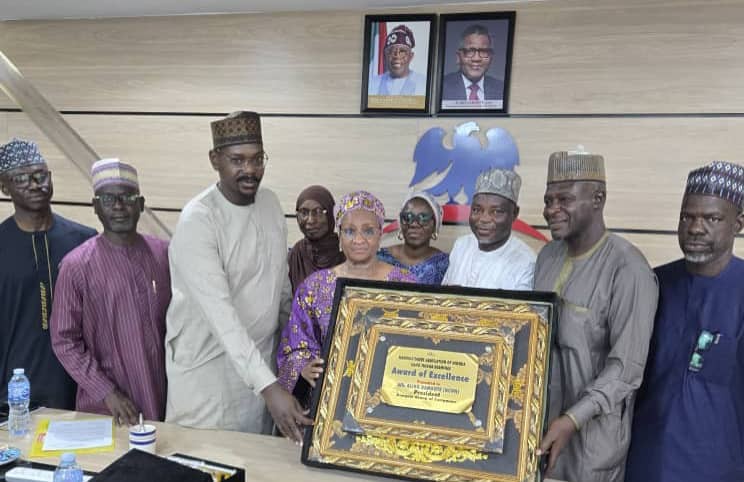Business
Northern Nigeria Industrialists Support 15% Fuel Tariff Increase

By Angel Ike
Northern Nigeria Industrialists have welcomed the Federal Government’s imposition of a 15% import duty on petroleum products.
They view this policy as a strategic effort to boost local production, increase value addition in the oil and gas sector, and foster competition among Nigerian manufacturers.
Muhammad Nura Madugu, Chairman of the Sharada-Challawa branch of the Manufacturers Association of Nigeria (MAN) in Kano, emphasised the alignment of local manufacturers with government policies aimed at industrial growth and global competitiveness.
He highlighted numerous business opportunities arising from crude oil refining by Dangote Refinery, including products like petrol, diesel, kerosene, jet fuel, and petrochemical feedstocks.
During a visit to the Dangote Group’s regional office in Abuja, the MAN team praised Dangote Group President Aliko Dangote for his commitment to Nigeria’s development. They presented Awards of Excellence to Dangote and Fatima Wali-Abdurrahman, Dangote’s Special Adviser on Strategic Relations and Projects, who affirmed the company’s dedication to promoting local products and job creation.
The refinery currently operates at 650,000 barrels per day, covering Nigeria’s fuel demand with plans to expand to 1.4 million barrels per day, potentially creating about 65,000 jobs.
Anthony Chiejina, Dangote Group’s spokesman, confirmed the refinery’s ability to supply over 45 million liters of petrol and 25 million liters of diesel daily, surpassing national requirements.
Muhammad Umar, Chairman of MAN Kano-Jigawa Branch, supported the new import duty, stating it would reduce imports, ease foreign exchange pressure, and strengthen the naira.
He acknowledged the policy’s potential to encourage investment in refining and increase government revenue, but noted it could raise fuel prices if local supply falls short.
President Bola Tinubu approved the 15% tariff to stimulate local refining and strengthen Nigeria’s energy independence. His advisor, Sunday Dare, described the policy as “a bridge, not a burden,” aiming to transform the petroleum sector by reducing reliance on imports, encouraging local capacity, and promoting economic stability.
